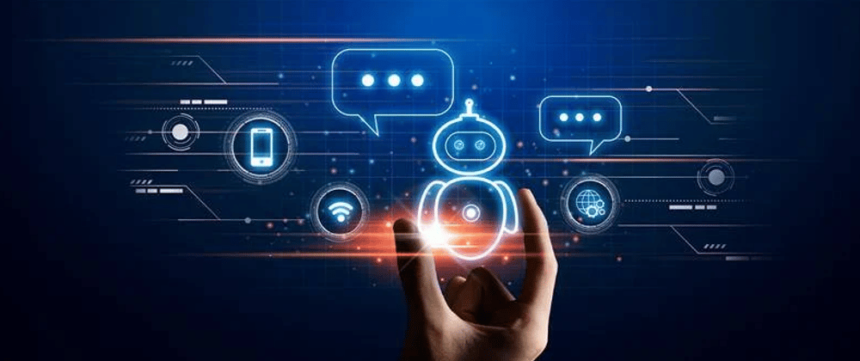In today’s fast-paced digital world, businesses are always looking for ways to improve customer service, boost efficiency, and streamline operations. One powerful tool that is transforming business interactions is the chatbot for enterprise. These AI-powered assistants help businesses manage customer interactions, automate processes, and enhance overall productivity.
In this guide, we’ll explore what enterprise chatbots are, their key benefits, and how they are used across different industries.
What Is a Chatbot for Enterprise?
A chatbot for enterprise is an AI-driven software tool designed to help businesses automate conversations and tasks. Unlike basic chatbots, enterprise chatbots are built for large-scale operations. They can handle complex queries, provide real-time support, and integrate with business tools like CRM systems, ERP software, and 24/7 customer service platforms.
These chatbots work across multiple channels, including websites, mobile apps, social media platforms like Facebook Messenger, and voice assistants such as Alexa.
Key Benefits of Enterprise Chatbots
Using a chatbot for enterprise provides numerous advantages, from improving customer experience to reducing costs. Here are some of the top benefits:
1. 24/7 Customer Support
One of the biggest advantages of enterprise chatbots is their ability to provide round-the-clock service. Unlike human agents, chatbots are always available, responding to customer queries instantly.
2. Faster Response Times
Customers expect quick answers. Chatbots handle multiple inquiries simultaneously, reducing wait times and enhancing satisfaction.
3. Cost Savings
Hiring and training customer service representatives can be costly. Chatbots handle repetitive tasks, allowing businesses to save on labor costs and let employees focus on more complex issues.
4. Increased Efficiency
Chatbots automate routine tasks like answering FAQs, processing orders, and scheduling appointments. This reduces the workload on human staff and increases overall efficiency.
5. Personalized Customer Experience
AI-powered chatbots analyze customer interactions and provide personalized recommendations. They remember past conversations, making interactions smoother and more relevant.
6. Seamless Integration with Business Tools
Enterprise chatbots integrate with CRM, ERP, and other business applications, making it easy to manage customer data, track orders, and automate workflows.
7. Data Collection and Insights
Chatbots gather valuable data from interactions, helping businesses analyze trends, identify common issues, and improve services.
8. Scalability
As businesses grow, handling customer inquiries becomes challenging. Enterprise chatbots scale effortlessly, managing thousands of conversations at once.
Popular Use Cases of Enterprise Chatbots
Chatbots for enterprises are used across various industries to enhance customer interactions and automate internal processes. Here are some of the most common use cases:
1. Customer Support
Many companies use chatbots to provide instant support by answering FAQs, troubleshooting issues, and escalating complex queries to human agents.
✅ Example: A telecom company uses a chatbot to assist with billing inquiries and network issues.
2. E-commerce and Retail
Chatbots help online stores engage customers, recommend products, and assist with transactions.
✅ Example: An e-commerce chatbot helps customers find products, check stock, and track orders.
3. Banking and Finance
Financial institutions use chatbots for secure customer service, including balance updates, transactions, and financial advice.
✅ Example: A banking chatbot helps users transfer money, check transactions, and set account alerts.
4. Healthcare
Healthcare chatbots assist patients with appointment scheduling, symptom checking, and medication reminders.
✅ Example: A hospital chatbot helps patients book doctor appointments and get medical service information.
5. HR and Employee Support
HR departments use chatbots to handle employee inquiries about company policies, leave applications, and payroll.
✅ Example: An HR chatbot assists employees with onboarding and benefits-related questions.
6. Travel and Hospitality
Travel companies use chatbots to help customers book flights, reserve hotels, and get real-time updates.
✅ Example: A travel chatbot suggests destinations, checks flight availability, and processes bookings.
7. IT Helpdesk
IT departments deploy chatbots to troubleshoot software issues and reset passwords.
✅ Example: An IT chatbot helps employees fix network problems and request technical support.
8. Legal and Consulting Services
Law firms and consultants use chatbots to handle client inquiries and schedule consultations.
✅ Example: A law firm chatbot answers basic legal questions and helps book appointments with attorneys.
How to Implement a Chatbot for Enterprise
If you’re considering adding a chatbot to your business, follow these key steps:
Step 1: Define Your Goals
Determine what you want the chatbot to achieve, whether it’s for customer support, lead generation, or workflow automation.
Step 2: Choose the Right Chatbot Platform
Select a chatbot solution that meets your business needs. Platforms like ChatArm offer advanced AI chatbots tailored for enterprises.
Step 3: Train Your Chatbot
Use past customer interactions and FAQs to train your chatbot. AI powered chatbots improve over time by learning from conversations.
Step 4: Integrate with Business Systems
Ensure your chatbot connects with CRM, ERP, and other essential tools for a seamless experience.
Step 5: Monitor and Improve
Analyze chatbot interactions, gather feedback, and make improvements to enhance performance.
The Future of Enterprise Chatbots
The future of chatbots for enterprise looks promising. AI advancements continue to make chatbots smarter, enabling them to handle even more complex interactions. Businesses adopting chatbot technology today will stay ahead of the competition and improve customer satisfaction.
Conclusion
Enterprise chatbots are transforming the way businesses operate. By automating customer interactions, streamlining processes, and reducing costs, these AI-powered tools enhance efficiency across industries. Whether in retail, banking, healthcare, or HR, implementing a chatbot can lead to significant business growth.
Ready to leverage AI-powered chatbots for your business? Start today with ChatArm!
Visit News Dusk for more interesting topics.



